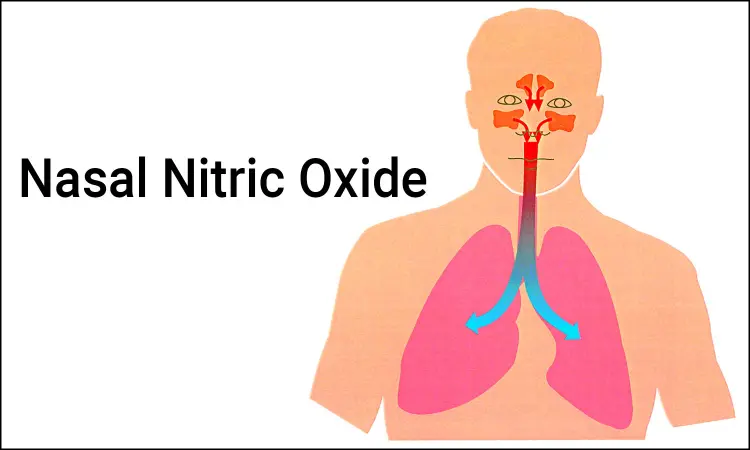- Home
- Medical news & Guidelines
- Anesthesiology
- Cardiology and CTVS
- Critical Care
- Dentistry
- Dermatology
- Diabetes and Endocrinology
- ENT
- Gastroenterology
- Medicine
- Nephrology
- Neurology
- Obstretics-Gynaecology
- Oncology
- Ophthalmology
- Orthopaedics
- Pediatrics-Neonatology
- Psychiatry
- Pulmonology
- Radiology
- Surgery
- Urology
- Laboratory Medicine
- Diet
- Nursing
- Paramedical
- Physiotherapy
- Health news
- Fact Check
- Bone Health Fact Check
- Brain Health Fact Check
- Cancer Related Fact Check
- Child Care Fact Check
- Dental and oral health fact check
- Diabetes and metabolic health fact check
- Diet and Nutrition Fact Check
- Eye and ENT Care Fact Check
- Fitness fact check
- Gut health fact check
- Heart health fact check
- Kidney health fact check
- Medical education fact check
- Men's health fact check
- Respiratory fact check
- Skin and hair care fact check
- Vaccine and Immunization fact check
- Women's health fact check
- AYUSH
- State News
- Andaman and Nicobar Islands
- Andhra Pradesh
- Arunachal Pradesh
- Assam
- Bihar
- Chandigarh
- Chattisgarh
- Dadra and Nagar Haveli
- Daman and Diu
- Delhi
- Goa
- Gujarat
- Haryana
- Himachal Pradesh
- Jammu & Kashmir
- Jharkhand
- Karnataka
- Kerala
- Ladakh
- Lakshadweep
- Madhya Pradesh
- Maharashtra
- Manipur
- Meghalaya
- Mizoram
- Nagaland
- Odisha
- Puducherry
- Punjab
- Rajasthan
- Sikkim
- Tamil Nadu
- Telangana
- Tripura
- Uttar Pradesh
- Uttrakhand
- West Bengal
- Medical Education
- Industry
Nasal nitric oxide useful biomarker in persistent allergic rhinitis

Researchers have reported that nasal nitric oxide (NO) is a useful tool for the follow-up of patients with persistent allergic rhinitis (PER) and helps clinicians to estimate the level of treatment response. They had conducted a study to evaluate the role of nasal nitric oxide (NO) in the management of patients with persistent allergic rhinitis (PER). This study has been published in Advances in Medical Sciences.
In the study, the subjects were classified as controls (healthy subjects) or patients with PER based on defined criteria. All clinical, functional and biological data were collected for analyzing. In all 267 patients with mild and moderate-to-severe PER and 234 control subjects were randomised to antihistamine (AHS) plus leukotriene receptor antagonist (LKA) or intranasal steroid (INS) for six months. Baseline IgE and blood eosinophils were assessed and nasal fractional exhaled nitric oxide (FENO) was measured by electroluminescence device.
It was found that the Nasal FENO, IgE, and eosinophils were higher in PER patients than in control subjects. In the control subjects, there were no significant correlations between FENO, total IgE, and eosinophil counts. In patients with persistent allergic rhinitis, the level of nasal FENO was significantly correlated with total IgE and blood eosinophil counts.
Following treatment, clinical symptoms and nasal FENO were improved in allergic patients. Patients treated with INS responded better than patients treated with AHS plus LKA. Total IgE and eosinophils count were not significantly decreased after treatment.
it was concluded that Nasal NO measurement is a useful tool for the follow-up of patients with PER. It also helps clinicians to estimate the level of response to treatment in patients with persistent allergic rhinitis. Nasal FENO may be a useful biomarker for diagnosis and for evaluating treatment response during follow-up in patients with persistent allergic rhinitis.
For more details click on the link:Vo-Thi-Kim A, Van-Quang T, Nguyen-Thanh B, et al. The effect of medical treatment on nasal exhaled nitric oxide (NO) in patients with persistent allergic rhinitis: A randomized control study. Adv Med Sci 2020;65(1):182-188.
Hina Zahid Joined Medical Dialogue in 2017 with a passion to work as a Reporter. She coordinates with various national and international journals and association and covers all the stories related to Medical guidelines, Medical Journals, rare medical surgeries as well as all the updates in the medical field. Email: editorial@medicaldialogues.in. Contact no. 011-43720751
Dr Kamal Kant Kohli-MBBS, DTCD- a chest specialist with more than 30 years of practice and a flair for writing clinical articles, Dr Kamal Kant Kohli joined Medical Dialogues as a Chief Editor of Medical News. Besides writing articles, as an editor, he proofreads and verifies all the medical content published on Medical Dialogues including those coming from journals, studies,medical conferences,guidelines etc. Email: drkohli@medicaldialogues.in. Contact no. 011-43720751


